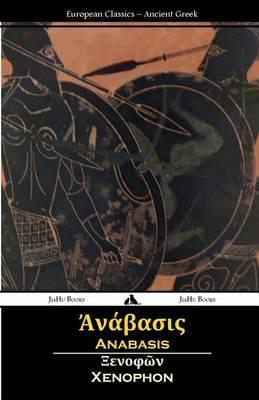Anabasis is the most famous work, in seven books, of the Greek professional soldier and writer Xenophon. Xenophon accompanied the Ten Thousand, a large army of Greek mercenaries hired by Cyrus the Younger, who intended to seize the throne of Persia from his brother, Artaxerxes II. Though Cyrus' mixed army fought to a tactical victory at Cunaxa in Babylon (401 BC), Cyrus was killed in the battle and the expedition was rendered a failure. Stranded deep in enemy territory, Xenophon, who was one of three remaining leaders elected by the soldiers, played an instrumental role in encouraging the Greek army of 10,000 to march north across foodless deserts and snow-filled mountain passes towards the Black Sea and the comparative security of its Greek shoreline cities. Now abandoned in northern Mesopotamia, without supplies other than what they could obtain by force or diplomacy, the 10,000 had to fight their way northwards through Corduene and Armenia, making ad hoc decisions about their leadership, tactics, provender and destiny, while the King's army and hostile natives constantly barred their way and attacked their flanks. Ultimately this "marching republic" managed to reach the shores of the Black Sea at Trabzon, a destination they greeted with their famous cry of joyous exultation on the mountain of Theches (now Madur) in Surmene: "thalassa, thalassa" as this meant that they were at last among Greek cities. But it was not the end of their journey, which included a period fighting for Seuthes II of Thrace, and ended with their recruitment into the army of the Spartan general Thibron. Xenophon's account of the exploit resounded through Greece, where, two generations later, some surmise, it may have inspired Philip of Macedon to believe that a lean and disciplined Hellene army might be relied upon to defeat a Persian army many times its size. Besides military history, the Anabasis has found use as a tool for the teaching of classical philosophy; the principles of leadership and government exhibited by the army can be seen as exemplifying Socratic philosophy. Traditionally Anabasis is one of the first unabridged texts studied by students of classical Greek because of its clear and unadorned style; similar to Caesar's Commentarii de Bello Gallico for Latin students.















